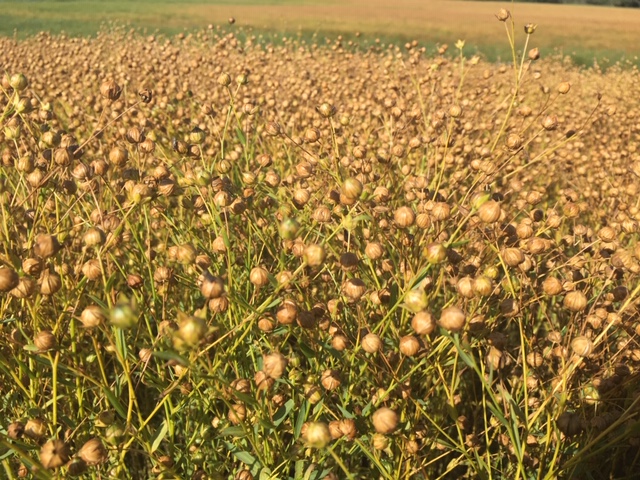Enhancing genetic gain for yield, biotic and biotic stress tolerance in flax
Crop Types
- Flax
Collaborating Locations
University of SaskatchewanFlax (Linum usitatissimum L.) plays an important role in the Canadian economy. Annually flax is grown on over 900 thousand acres in Canada (StatCan 2021). In 2020, Canada produced 578,000 tonnes of flax with farm cash receipts of $306 million (StatCan, 2021). The Canadian seeded area and production of flax is expected to increase in the next decades due to the increasing interest in omega-3 fatty acids for their health benefits for humans and animals, and the demand for industrial oil uses. The growth in flax production will depend on the availability of new lines with high yield potential, improved agronomic characteristics, and with acceptable seed nutritional quality. This project proposes to introduce the variability from Linum bienne to improve the yield and other agronomic traits in cultivated flax. Previous work done resulted in the observation that L. bienne accessions have higher resistance to pasmo and better tolerance to abiotic stresses such as heat and drought.
Objectives
- Enhance flax yield potential by increasing additive genetic variance, increasing selection intensity, and reducing time interval
- Develop screening protocol for tolerance to high temperatures.
- Identifying interspecific flax genotypes with tolerance to a) heat stress and b) resistance to pasmo
- Identify genetic components associated with a) heat tolerance and b) resistance to pasmo in interspecific population of flax.
- Development of breeding lines with improved yield potential and tolerance to high temperature and improved resistance to pasmo.


